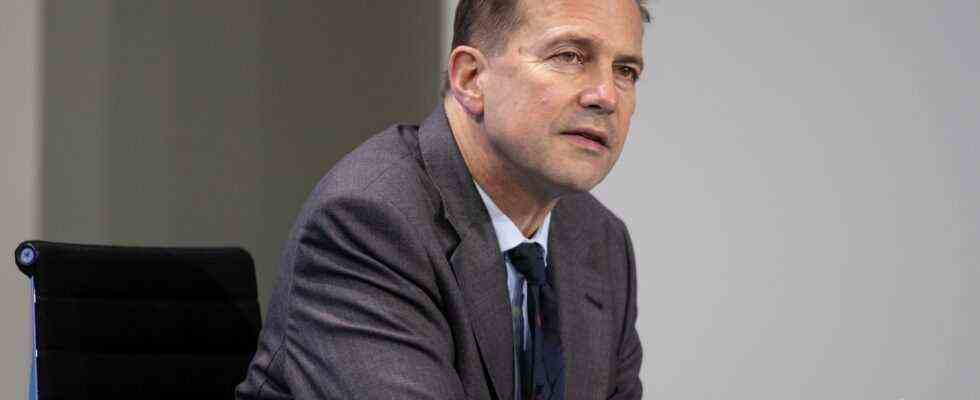As of: 25.10.2021 2:07 p.m.
The German government reacted with concern to the threatened expulsion of ten ambassadors by Turkish President Erdogan. The Foreign Office stated that it had not yet received an official letter from Ankara.
The federal government is disgruntled by the threat by Turkish President Recep Tayyip Erdogan to declare the German ambassadors and diplomats from other countries undesirable. The government took note of these statements “with concern and also with incomprehension,” said government spokesman Steffen Seibert.
He called the German-Turkish relations a “very important relationship for our foreign policy”. Nonetheless, concerns about certain developments in Turkey are always openly addressed. “There is no speculation about reactions now,” added Seibert.
No formal notification of expulsion so far
The background to Erdogan’s threats is a statement made by the ambassador at the beginning of last week. In it they demand the release of the Turkish entrepreneur and culture promoter Osman Kavala. Erdogan then said on Saturday that he had instructed the Turkish Foreign Ministry to declare the ambassadors of a total of ten countries to be “persona non grata”. Affected are, among others, Germany, France and the USA.
A “persona non grata” is an “undesirable person”. If a diplomat is declared such a person by a host country, they are no longer welcome. Your activity on site will be terminated by the corresponding notification to the home country.
The home state, in turn, is obliged under international law to recall the “persona non grata”; the diplomat in question must leave the host country within a certain period of time. According to the Foreign Office, 48 hours or more are usual.
The Foreign Office emphasized that no formal notification from Turkey on this matter had yet been received. “To date, we have not received any such notification through diplomatic channels,” said the deputy spokeswoman for the Federal Foreign Office, Andrea Sasse. However, she pointed out that the declaration of the undesirable person was a “particularly serious measure” in diplomatic relations.
“A break that would massively damage Turkey”
Berlin had “intensively” consulted with the other affected states over the weekend; these conversations continued. Should the diplomats actually declare undesirable persons, this would contradict the depth and importance of German-Turkish relations, the spokeswoman said. Nor would it correspond to “dealing with NATO allies”. If it comes to that, Germany will again consult with the other affected countries about the reaction.
The foreign policy spokesman for the Union parliamentary group, Jürgen Hardt, considers the threatened expulsion of the diplomats to be avertable. According to his impression, there is “great concern” in Turkey outside of Erdogan’s immediate environment that such a step “means a break that would massively damage Turkey,” said the CDU politician on Deutschlandfunk. Erdogan’s harsh words can still be “cured by moderate words and appropriate action by the Foreign Minister” Mevlüt Cavusoglu.
Kavala in custody since 2017
Hardt advised waiting for the meeting of the Turkish cabinet scheduled for today and the behavior of Cavusoglu. The CDU politician was convinced that Erdogan’s approach had a “strong domestic political dimension”. In terms of domestic politics, the Turkish president is “with his back against the wall”. In particular, the poor economic situation in the country is causing “growing skepticism” towards Erdogan. The threatened expulsion has also caused the local currency, the lira, to drop to a record low. The Turkish currency has already fallen by 24 percent against the dollar since the beginning of the year.
The 64-year-old Kavala has been in custody in Istanbul since 2017, although the European Court of Human Rights (ECHR) ordered his release in 2019. He is accused of supporting the Gezi protests in Istanbul in 2013, which were critical of the government, and of instigating an attempted coup. He is also accused of “political and military espionage” in connection with the attempted coup in 2016. Critics see the allegations as politically motivated.

